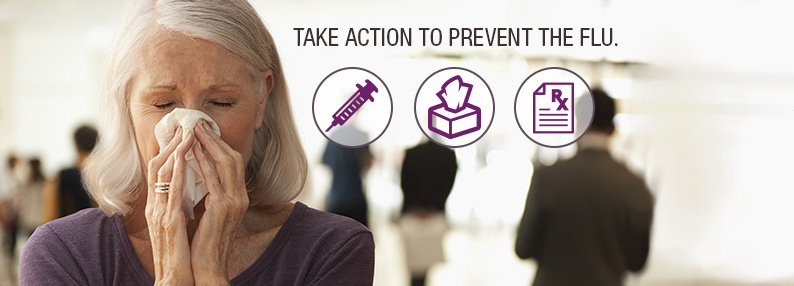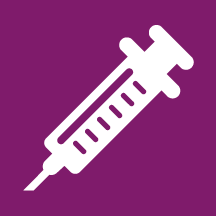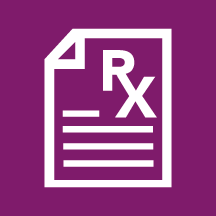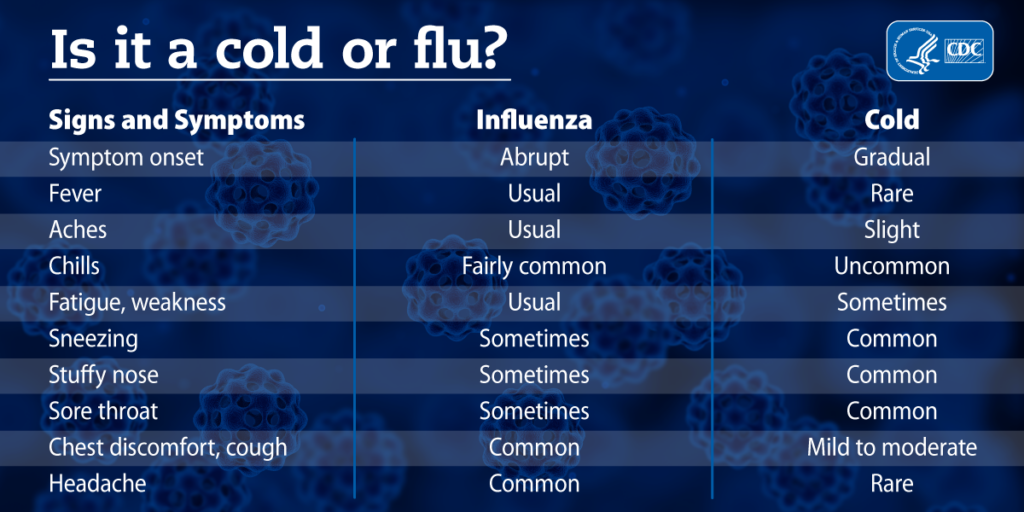Fight The Flu


1. GET THE FLU VACCINE
- The CDC recommends a yearly flu vaccine as the first and most important step in protecting against flu viruses. Everyone 6 months of age and older should get a flu vaccine every year.
- Vaccination can reduce the severity of flu illnesses, healthcare visits, and missed work or school.

2. PREVENT THE SPREAD OF THE FLU VIRUS
- Wash your hands often with soap and water.
- Cover your nose and mouth with a tissue when you cough or sneeze.
- Clean and disinfect surfaces and objects that may be contaminated.
- If you are sick with flu symptoms, stay home for at least 24 hours after your fever is gone without fever reducing medications, except to get medical care or other necessities.
- Limit contact with others when you are sick.

3. TAKE FLU ANTIVIRAL DRUGS IF YOUR DOCTOR PRESCRIBES THEM
- Antiviral drugs can reduce the severity of illness and shorten the time you are sick.
- Antiviral drugs are best started within 2 day of getting sick. Starting them later can still be helpful.
What is the difference between a cold and the flu?
Because colds and flu share many symptoms, it can be difficult (or even impossible) to tell the difference between them. Most people with flu have mild illness and do not need medical care or antiviral drugs. If you are in a high risk group for flu complications or are very sick or worried about your illness, contact your healthcare provider.

References
- New Jersey Influenza-like Illness Weekly Reports https://www.nj.gov/health/cd/statistics/flu-stats/
- United States Influenza-like Illness Weekly Reports https://www.cdc.gov/flu/weekly/index.htm#ILIMap
- https://www.cdc.gov/flu/index.htm
